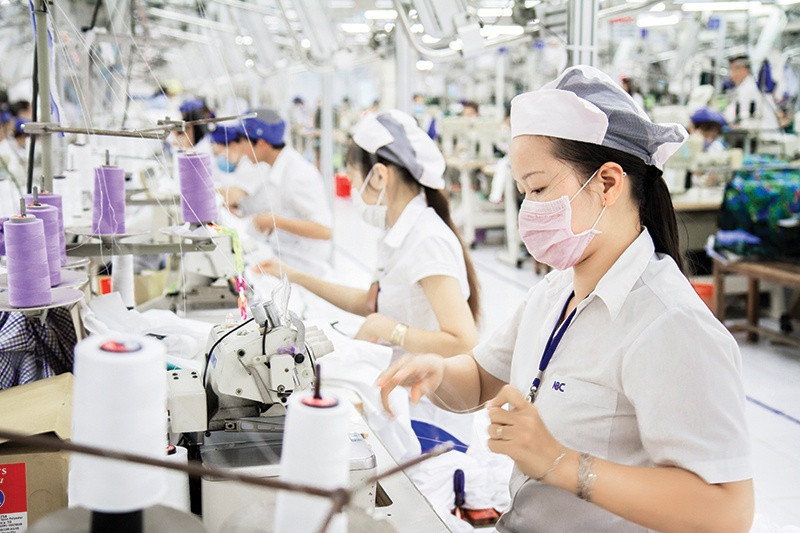
At a workshop on the traceability of textile materials before the impact of the new geopolitical situation organised by the Vietnam Textile and Apparel Association (VITAS) and the Cotton Council International held in Ho Chi Minh City within the framework of the SaigonTex 2022 exhibition last week, Truong Van Cam, vice president of VITAS said that textile and garment enterprises are under great pressure as the regulations on traceability of materials are presenting more obstacles for these producers.
“Traceability is a critical requirement for imported products in a number of locations, including the United States, the United Kingdom, EU, India, and Canada,” Cam said. "The shift from fast to sustainable fashion is bringing about a sea of changes. There will be limits on recycled content and stricter criteria for traceability of textiles and accessories."
Phung Thi Minh Hang, a representative of TNG Investment and Trading JSC, confirmed that the company is implementing regulations for goods traceability activities to certify goods as recycled according to the standard process for recycled goods.
After a period of implementation, foreign enterprises are requiring product information such as manufacturing date, production process, and product certifications, among others.
If Vietnamese enterprises want to enjoy the benefits of free trade agreements, they must meet the origin requirements for their input materials.
Looming obstacles
A significant number of small- and medium-sized businesses still lack a solid grasp of the full process, which includes maintaining product information, supplying standardised data, and confirming manufacturing operations.
Vu Kim Thanh, a representative of Fashion Garments 2 located in Dong Nai province, admitted that businesses are facing difficulties in traceability activities as the information about fabric and raw materials is still inconclusive.
According to Dang Hong Thuy, a representative of Sung Il Vietnam Co., Ltd. – a commercial enterprise specialising in supplying fabrics – traceability procedures still take up a lot of time for Vietnamese businesses and foreign customers. Especially in the early stages, businesses depend entirely on suppliers to prepare certificates.
Hang of TNG Investment and Trading JSC believes that the expenses for the traceability of raw materials are still relatively high, resulting in a 10 per cent rise in the cost of output goods, which impedes its competitiveness. In addition, the traceability procedure is highly complex and rigorous when it comes to periodic review and each time a new line is produced.
Numerous opportunities
The trend of using recycled and green products and sustainable resources is growing despite increased regulation.
According to Thuy of Sung Il Vietnam, customer confidence in the traceability process has led to a 30-40 per cent rise in orders despite higher prices.
Hang added, "Compared to 2020, the growth rate of export orders for Vietnamese enterprises will increase by 103 per cent in 2021 and by 218 per cent in the first half of 2022 thanks to traceability activities.”
In order to help with meeting the standards for raw material sourcing, the textile and garment industry is also coordinating with the Ministry of Industry and Trade to build a number of environmentally-friendly industrial parks with wastewater treatment systems and environmental protection measures.
Vietnamese textile and garment enterprises must swiftly adapt to the requirements governing product traceability and perform well in this area as many foreign markets prefer firms that engage in green manufacturing and utilise sustainable materials.
Source: VIR